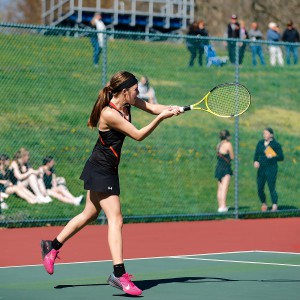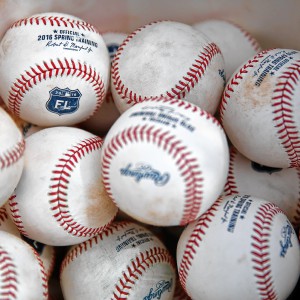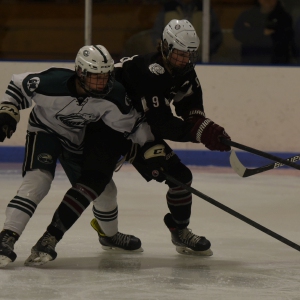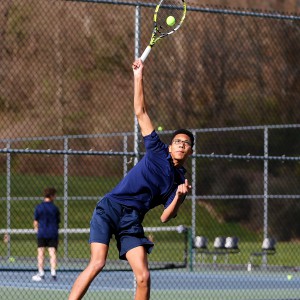If money is right, Kentucky’s Calipari fine with abolishing one-and-done rule
| Published: 06-27-2017 1:07 AM |
With the growing likelihood that the foundational piece of Kentucky’s program will be removed from college basketball, Kentucky Coach John Calipari said the sport should proceed cautiously in a future without one-and-done players.
Speaking on a Southeastern Conference teleconference Monday, Calipari offered qualified support for college basketball adopting the so-called baseball rule: prospects could turn pro directly out of high school or commit to three college seasons before turning pro.
“I’m fine with the baseball rule,” Calipari said. “It doesn’t bother me. But whatever we do, I think we’ve got to really, really consider the kids.”
Players who go directly from high school to the NBA should be paid NBA-type salaries, not salaries typical of the NBA’s developmental league, or as it’s now known, the G League, Calipari said.
If the baseball rule means, say, $20 million contracts out of high school, “I’m good, I’m fine,” Calipari said. If players would be paid developmental league salaries, “I’ll be shouting from the mountaintops saying, ‘What is this going to do to a generation of kids? ... You get one or two years to make it, and now you’re out. ... Who’s taking care of those kids, now?”
Vanderbilt coach Bryce Drew said his six-year NBA playing career (stops in Houston, Chicago, Charlotte and New Orleans) made him familiar with players whose basketball dreams did not come true.
Recalling a second-round pick who came out of high school, Drew said, “He was up with us a little bit. Then I never heard of him. Never knew where he went. Never knew what happened to his career. He never really made it, and never was able to go to college. So I kind of see the horror stories.”
The sport of basketball will thrive no matter what rule the NBA and its Players Association agrees to regarding when players can turn pro, Calipari said.
Article continues after...
Yesterday's Most Read Articles
 Locking up carbon for good: Easthampton inventor’s CO2 removal system turns biomass into biochar
Locking up carbon for good: Easthampton inventor’s CO2 removal system turns biomass into biochar
 Northampton man will go to trial on first-degree murder charge after plea agreement talks break down
Northampton man will go to trial on first-degree murder charge after plea agreement talks break down
 Police report details grisly crime scene in Greenfield
Police report details grisly crime scene in Greenfield
 Area property deed transfers, April 25
Area property deed transfers, April 25
 Advancing water treatment: UMass startup Elateq Inc. wins state grant to deploy new technology
Advancing water treatment: UMass startup Elateq Inc. wins state grant to deploy new technology
 Super defers Amherst middle school principal pick to successor; one finalist says decision is retaliation for lawsuit
Super defers Amherst middle school principal pick to successor; one finalist says decision is retaliation for lawsuit
Since 2006, the NBA’s Collective Bargaining Agreement with the Players Association required players to be 19 years old and a year out of high school in order to be eligible for the NBA draft.
The NBA has proposed increasing the age of draft eligibility to 20. “My sense is it’s not working for anyone ...” NBA Commissioner Adam Silver said this month of the one-and-done rule. “I think we all agree that we need to make a change.”
Last week, freshmen made up the first seven picks of the NBA draft, and 10 of the first 11. A record number of one-and-done players were drafted.
Duke coach Mike Krzyzewski called for players to be allowed to be eligible for the draft out of high school. He also called for a longer commitment to college.
“If they go to college, to legitimize the educational process, I think they should be there for two or three more years,” Krzyzewski said on a Sirius XM radio show.
Calipari scoffed at any suggestion that Kentucky’s one-and-done players are not college students.
“I don’t know where they got this ‘They don’t go to school,’” Calipari said. “It’s kind of like fake news. If you say it enough, it becomes what’s real. It’s not real.”
Krzyzewski spoke of players in college multiple years progressing halfway or more toward degrees. Calipari said Kentucky’s lifetime scholarship program enables players to complete degree work at some future time.
Among other coaches on the SEC teleconference, reaction to a change in the one-and-done rule was mixed.
South Carolina coach Frank Martin said that players should commit to three years “out of respect for what college athletics are all about.”
Martin said he has never supported the one-and-done rule nor believed that someone’s career should be delayed. “I don’t think anybody should be deprived from making money,” Martin said.
While supporting players being free to enter the NBA draft out of high school, Georgia coach Mark Fox said that college basketball would be better without one-and-done players. He included Kentucky in that assessment.
Calipari has done a “remarkable” job reloading with highly regarded freshmen each year, Fox said before adding, “Just think how good they’d be if he didn’t have to replace everybody every year.”
As a benefit to UK’s competitors, highly regarded recruits every other year might be more likely to consider other programs if Kentucky’s roster has holdovers who previously had been one-and-done players, Fox said. “It would spread out elite players because they couldn’t just go to the few programs that survive off the one-and-dones.”
Auburn coach Bruce Pearl said no one rule could accommodate all players. “There’s no perfect system,” he said.
But Pearl suggested that the NBA benefits from the exposure that comes with playing college basketball.
“No one knew of Lonzo Ball out of Chino Hills, Calif.,” Pearl said. “But they all know him out of UCLA.
“Kentucky has had 17 lotteries (lottery picks). One year (of college basketball). Boom! They have a brand.”
Kentucky’s 17 lottery picks since Calipari became coach in 2009 almost doubles the next highest total in that time: Kansas with nine. Calipari proposed a live-and-let-live philosophy going forward.
“It’s the coach’s choice to recruit these kind of kids,” Calipari said of the one-and-done player. For those who object, “Just don’t recruit them,” he said. “‘I want four-year guys.’ Then recruit four-year guys.
“I don’t understand what the issue is.”
Meanwhile, Kentucky figures to continue the theme next season, maybe even more so. With arguably less of a veteran presence than ever, the Cats again will be team dependent on freshmen. The newcomers are assumed to be in what Calipari is now fond of calling a “gap year.” In this gap, the players prepare for joining the NBA the following June while leading Kentucky to national contention.
When asked about UK’s team for the 2017-18 season, Calipari sounded like he could have been reading from a familiar script.
“We’re going to be really young,” he said. “Really, really the most inexperienced team that I’ve coached. So that’s going to be an issue to deal with.
“But I love the length. I love this group of guys. I love that they all want to win. When you talk to them, that’s what they want to talk about.”
]]>

 High schools: Ava Shea, Belchertown girls tennis get past South Hadley (PHOTOS)
High schools: Ava Shea, Belchertown girls tennis get past South Hadley (PHOTOS) Baseball: Chace Earle shuts down Easthampton in Hopkins Academy’s 13-0 win
Baseball: Chace Earle shuts down Easthampton in Hopkins Academy’s 13-0 win 2024 Gazette Ice Hockey Player of the Year: Cooper Beckwith, Amherst
2024 Gazette Ice Hockey Player of the Year: Cooper Beckwith, Amherst High schools: Northampton boys tennis takes down Amherst in rain-shortened title-game rematch (PHOTOS)
High schools: Northampton boys tennis takes down Amherst in rain-shortened title-game rematch (PHOTOS)
